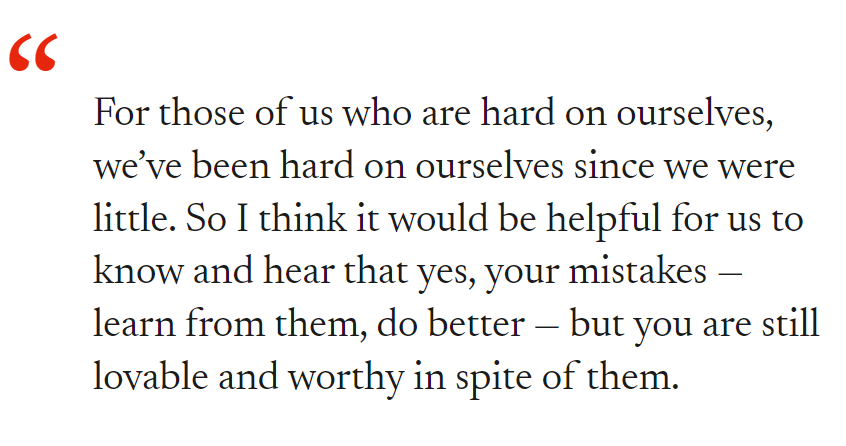
I have always been fascinated by people who say things like, “I live life with no regrets. Because every choice I’ve made has gotten me to where I am today.”
Sometimes I even am that person.
But come on, let’s be honest here. We can be honest here, right? Tell me there’s not one single thing about your past you wish you could change.
Is there one little faux pas you wish you could undo?
One bridge you burnt that you’d have handled differently?
One time your tone came across completely differently than you had intended and it really hurt someone?
One time you yelled at your kids and they absolutely didn’t deserve it?
One time you tried to be helpful and ended up making things worse?
One email you should have thought about twice before sending? Or at least not used reply: all?
That one time in fifth grade you called a kid a mean name because, okay so it did rhyme with their actual name and it was low-hanging fruit as far as fifth grade comedy is concerned but ugh, you still feel sick to your stomach just thinking about it today?
If we all had time machines, certainly there’d be one mistake every one of us would go back to change.
Feeling bad about past mistakes is a good thing. It means you’re self-aware. You’re accountable. You have a conscience. You’re evolving.
As Adam Grant wisely put it, “recognizing moments of bad judgment is a step toward recognizing good judgment.”
But still, for those of us who want to be better people tomorrow than we were yesterday — or in fifth grade — it’s easy to self-flagellate for some of those mistakes, to wallow in the resulting shame or resentment or humiliation.
I think about my own mistakes more than I probably should — like the one C you get in a semester full of A’s, it’s the anomalies that always stand out. That includes the situations that we wish we had handled differently.
Confession: I am super hard on myself.
Then, in my recent interview with Luvvie Ajayi Jones, I heard the issue expressed in such a perfectly simple way, it’s completely reframing how I think about past mistakes from now on. She said:
We can’t let our mistakes define us.
It’s also one of the main lessons in her charming new children’s book, Little Troublemaker Makes a Mess.
(As a self-proclaimed Professional Troublemaker, you can imagine who the title character in the book might be.)
Luvvie spoke to me about raising kids to be “good troublemakers,” and reminding us that children push boundaries or rebel, so their mistakes sometimes come from the best of intentions. She also spoke so thoughtfully about reframing mistakes as lessons that have yet to be learned.
Yes yes yes!
I just love children’s books that help parents learn lessons too.
We are imperfect. We are human. We all screw up sometimes. Even Beyoncé and the Dalai Lama! Sometimes we do “bad” things for what we believe to be good motivations and sometimes we try to do good things that absolutely backfire in our faces.
Sometimes we just behave as our worst selves for any number of reasons.
I know I could certainly work on learning from it all — asking for forgiveness when I need to, forgiving myself, and then allowing myself the opportunity to do better next time.
Basically: More positive action, less shame.
And let’s be sure to teach our children the same. They are not their worst mistakes. They have lots and lots of room to grow. And above all, let’s remember to say, as my own parents said to us as kids, “we may not always like what you do, but we will always love you.”
In fact, let’s say that to ourselves once in a while too. How about we try that.
…
This article first appeared in https://www.printmag.com
Guest Author: Liz Gumbinner
Seeking to build and grow your brand using the force of consumer insight, strategic foresight, creative disruption and technology prowess? Talk to us at +971 50 6254340 or engage@groupisd.com or visiwww.groupisd.com/story

